People With Incredibly Lucky Lives Usually Have These 11 Things In Their Home
Lucky people create spaces for spiritual alignment, influenced by traditions like feng shui and energy clearing.
 Dragana Gordic | shutterstock
Dragana Gordic | shutterstock When someone seems lucky in life, it’s rarely just a coincidence. People with great luck usually live in spaces that energetically invite good things. Their homes aren’t just organized or beautiful; they’re attuned to flow, peace, and receptivity.
Lucky people arrange their space to support spiritual alignment, consciously or intuitively. These practices come from traditions like feng shui, energy clearing, and ancestral wisdom about how one's physical environment affects one's inner and outer world.
Here are 11 things people with incredibly lucky lives usually have in their home:
1. A front door that’s clear and welcoming
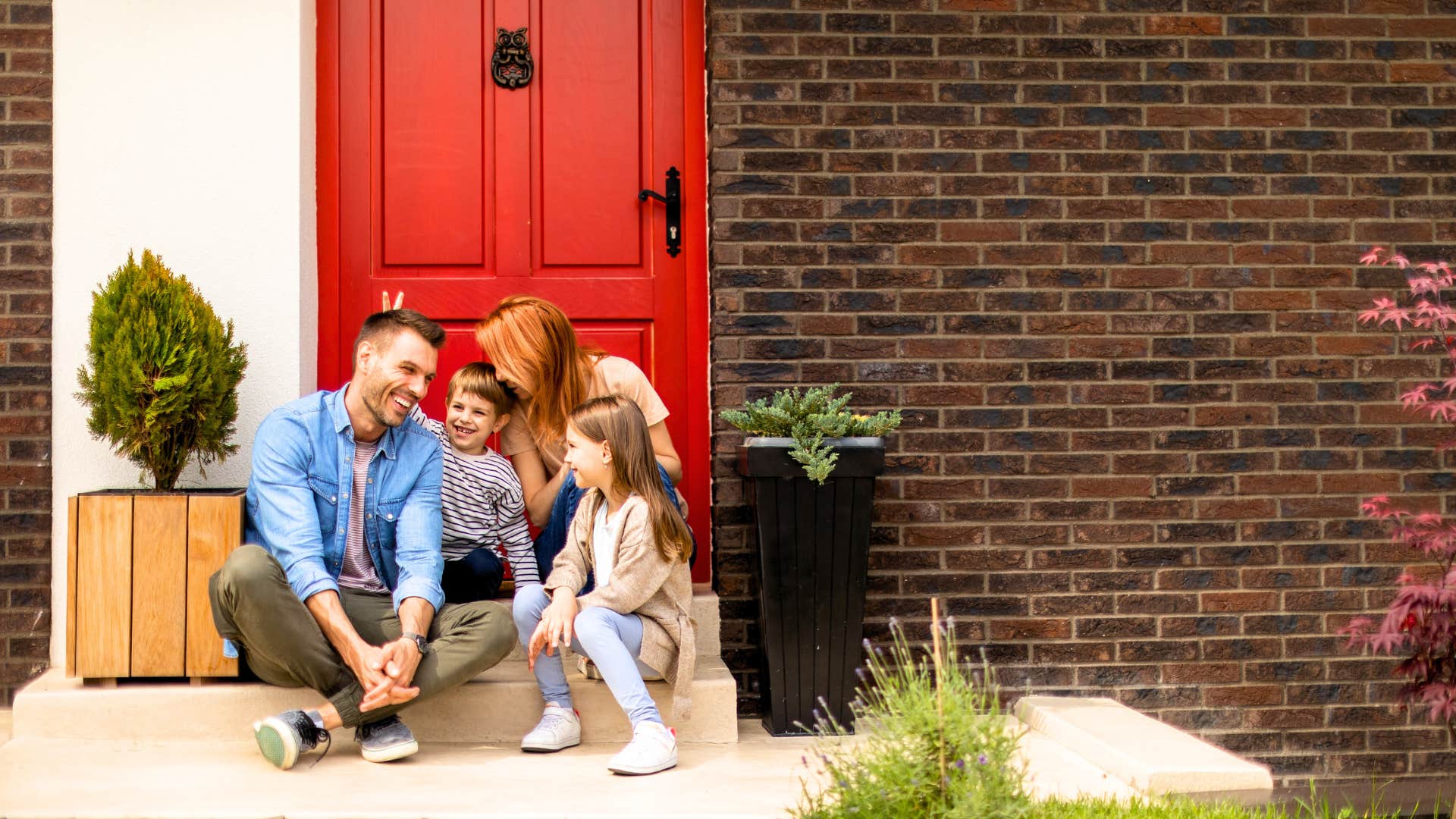 BGStock72 | Shutterstock
BGStock72 | Shutterstock
In feng shui, the front door is considered the mouth of chi. It’s the portal through which life force energy enters your home. It symbolically shuts off opportunities and abundance if blocked, jammed, or cluttered.
Feng shui expert Martin Whitmore emphasizes the significance of the front door, stating, "A strong and inviting front door holds the key to ushering in positive energy and promoting the harmonious flow of qi, the life force that brings abundance and tranquility."
Lucky people tend to have a front door that feels open and cared for. That might mean swept steps, a working light, a fresh doormat, or even just the door opening all the way. It invites new energy in and, more importantly, signals that the person is ready to receive. You can’t receive luck when the entrance to your life is energetically closed.
2. A place where they feel completely safe to rest
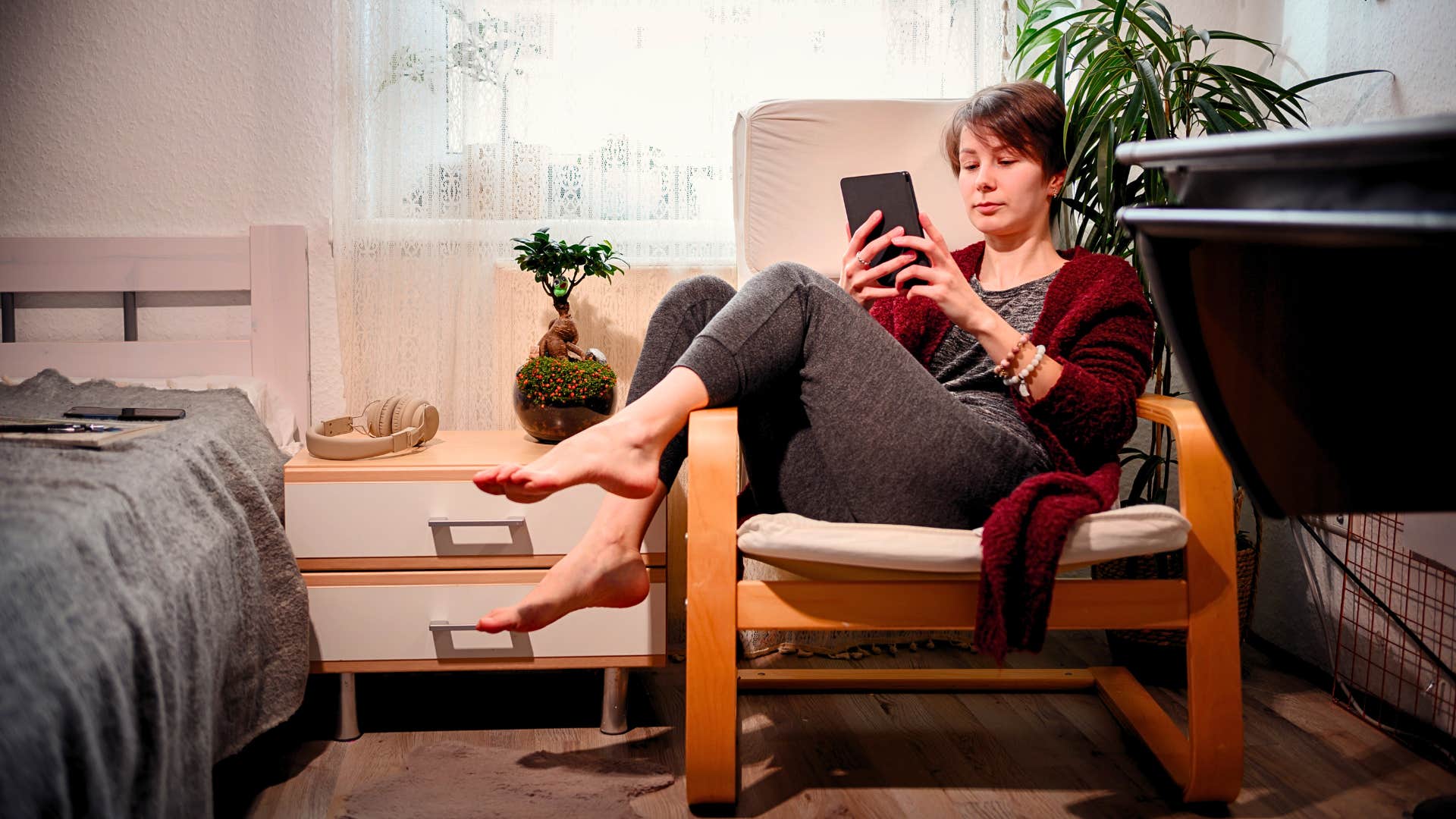 ivi.photo93 | Shutterstock
ivi.photo93 | Shutterstock
Abundance can’t land in a body that’s constantly in survival mode. That’s why spiritually aligned spaces prioritize rest, not just productivity. In feng shui, the bedroom is one of the most important areas for creating energetic stability, because it governs your health, relationships, and emotional processing.
From a scientific perspective, the quality of our sleep environment significantly impacts our emotional regulation and overall health. Research indicates a bidirectional relationship between sleep and emotion: Poor sleep can impair emotional regulation, and heightened emotional states can disrupt sleep patterns.
Furthermore, the design and layout of the bedroom can affect the quality of rest and, consequently, various health aspects. Considering factors like bed placement and layout, a carefully designed bedroom can enhance the quality of rest and address sleep-related disorders.
Lucky people often prioritize softness, privacy, and emotional safety in their sleep space. Whether it’s blackout curtains, cozy bedding, or just keeping work devices out of the bedroom, they create a nervous system-friendly environment because peace is magnetic. The more grounded you are at home, the more open your field is to positive change.
3. Meaningful objects that they love
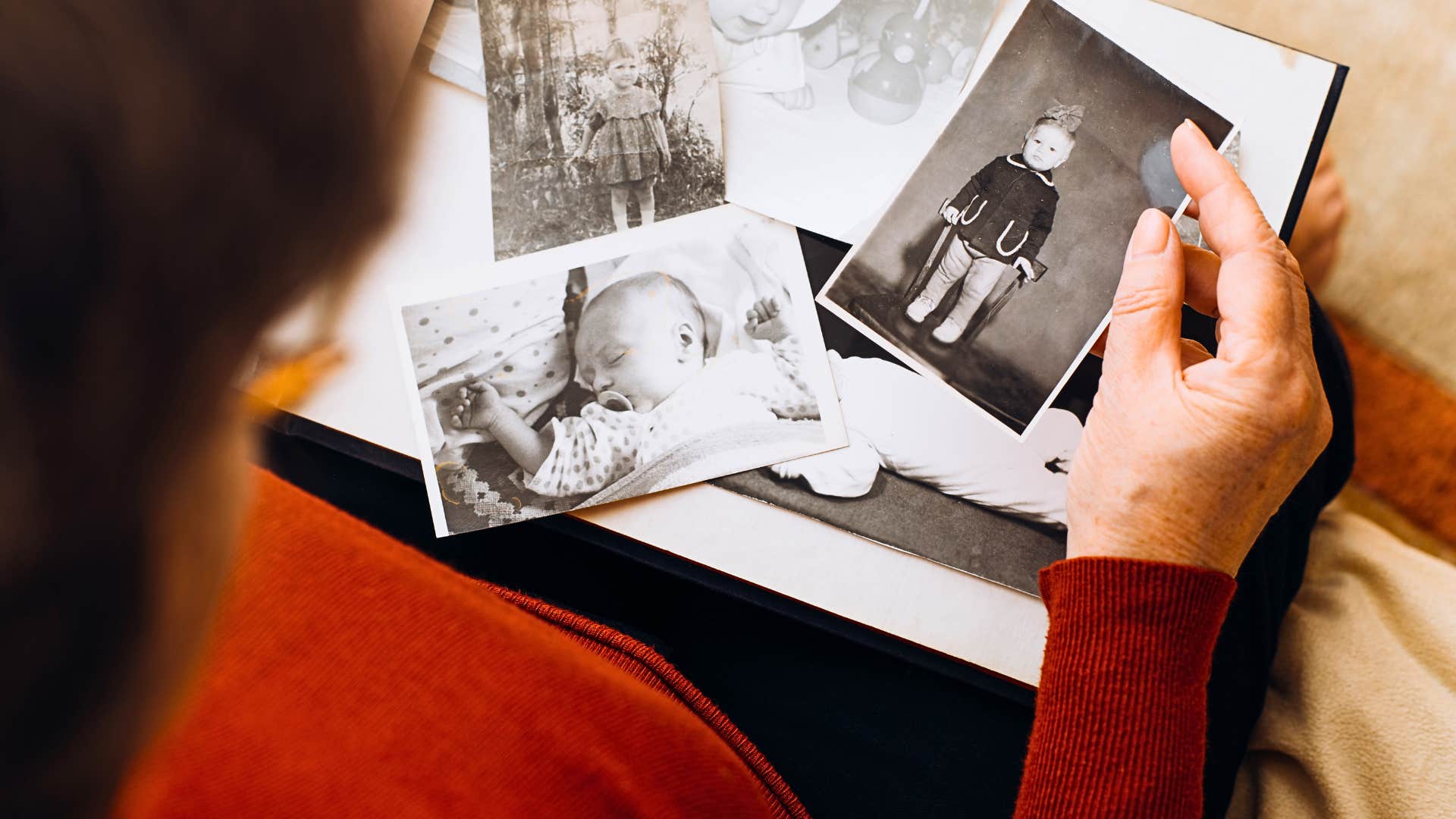 Sergio Photone | Shutterstock
Sergio Photone | Shutterstock
Feng shui emphasizes surrounding yourself with items that lift your qi, which is your personal energy field. Every object carries an energetic memory. When your space is filled with things you don’t care about, or worse, things tied to regret or resentment, it weighs down your vibration.
Feng shui expert Lillian Too cautions against displaying items with unknown histories, such as antiques, noting, "The danger with displaying antiques in the home is that you are unlikely to know the luck of the people who last owned the piece, or the quality of the Chi that still clings to the antique."
Similarly, Derelle Ball emphasizes the connection between our thoughts and the energy in our spaces: "Where the mind goes, Qi follows." This principle suggests our mental focus and surrounding objects are linked, influencing our energy.
Lucky people tend to keep sentimental or joyful objects in plain sight, like a photo that makes them smile, a piece of art they adore, a trinket from someone they love. Their home reflects their values and identity, not social pressure or design trends. That authenticity creates a high-vibration space that calls in aligned experiences.
4. A candle, incense, or some scent they love
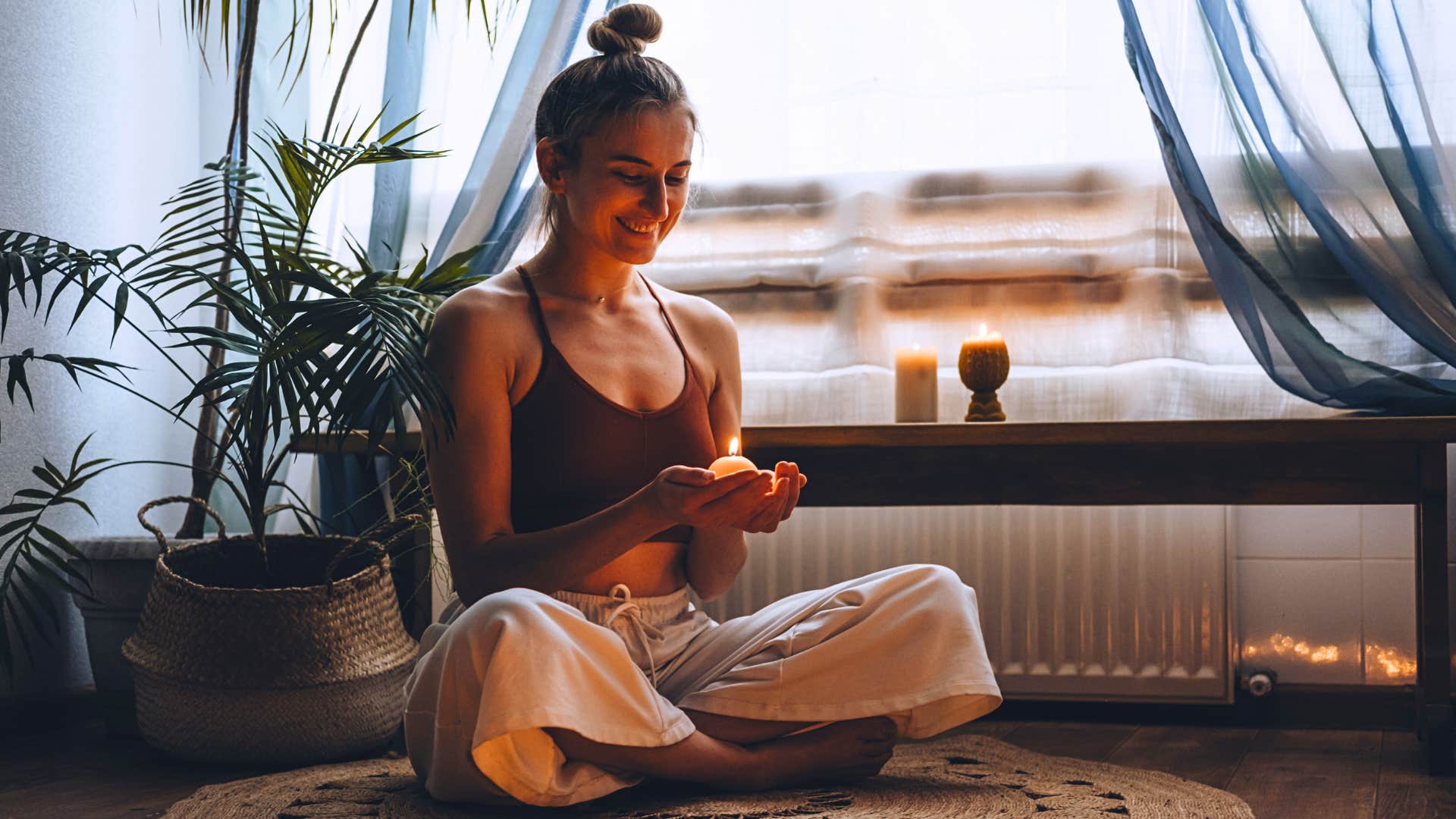 Iryna Imago | Shutterstock
Iryna Imago | Shutterstock
In spiritual practices from many cultures, including Chinese medicine, Ayurveda, and Indigenous traditions, scent cleanses energy, regulates mood, and marks sacred space. Fire-based tools like candles or incense also bring yang energy into a home, activating and refreshing stagnant areas.
Research has shown that certain scents can have a huge impact on our emotional well-being. Inhaling essential oils like lavender and chamomile has been found to decrease depression, anxiety, and stress in older adults.
From a feng shui perspective, burning incense is believed to purify spaces and attract positive energy. Specific scents, such as sandalwood and lavender, are traditionally used for their calming and stress-relieving properties.
Lucky homes tend to smell intentional. It’s not about being fancy, it’s about creating a sensory link to peace, comfort, or clarity. Lighting a candle or burning incense isn’t just cozy, it’s a ritual that resets the energetic tone and signals to the Universe that you are ready for abundance.
5. An uncluttered kitchen counter
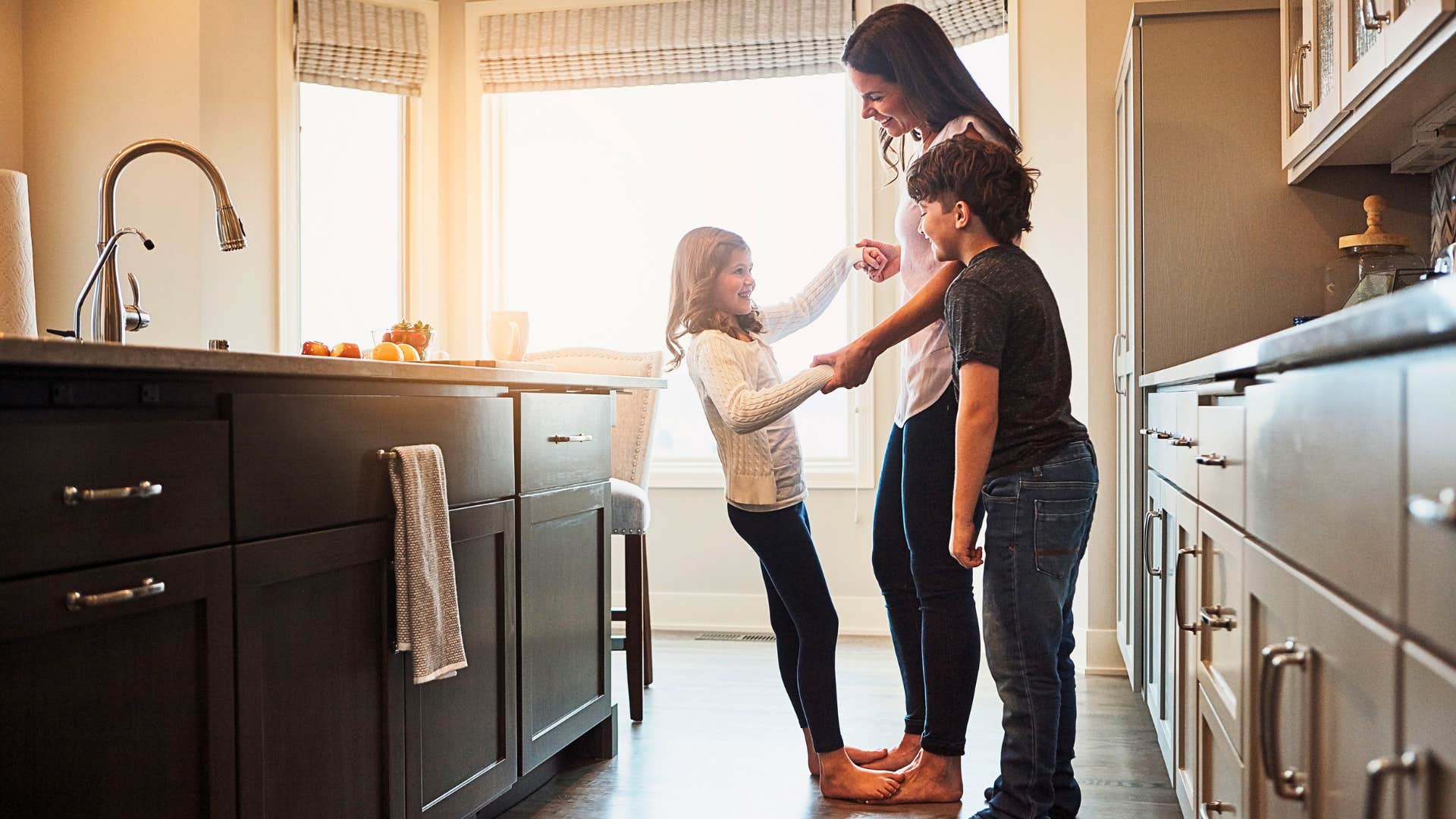 PeopleImages.com - Yuri A | Shutterstock
PeopleImages.com - Yuri A | Shutterstock
In feng shui, the kitchen represents nourishment, prosperity, and your relationship with receiving. A cluttered kitchen, especially the counters and stove, is believed to block financial flow and physical vitality. Feng Shui Your Way writes that keeping your kitchen clean and in good working order can help attract financial prosperity.
Clutter in the kitchen, especially on countertops and around the stove, can block energy flow, creating negative energy. It's important to keep the kitchen clean, organized, and clutter-free. Additionally, a tidy kitchen encourages healthy eating habits and contributes to overall well-being. Studies show that a well-organized kitchen encourages better food choices and improves overall health.
Lucky people don’t necessarily cook every day, but they keep their counters clear enough to choose to. The openness symbolizes mental clarity and capability. In spiritual terms, a clear counter is an altar to your future choices. When it’s clean, you’re energetically saying that they trust themselves to begin.
6. One space that’s just for them
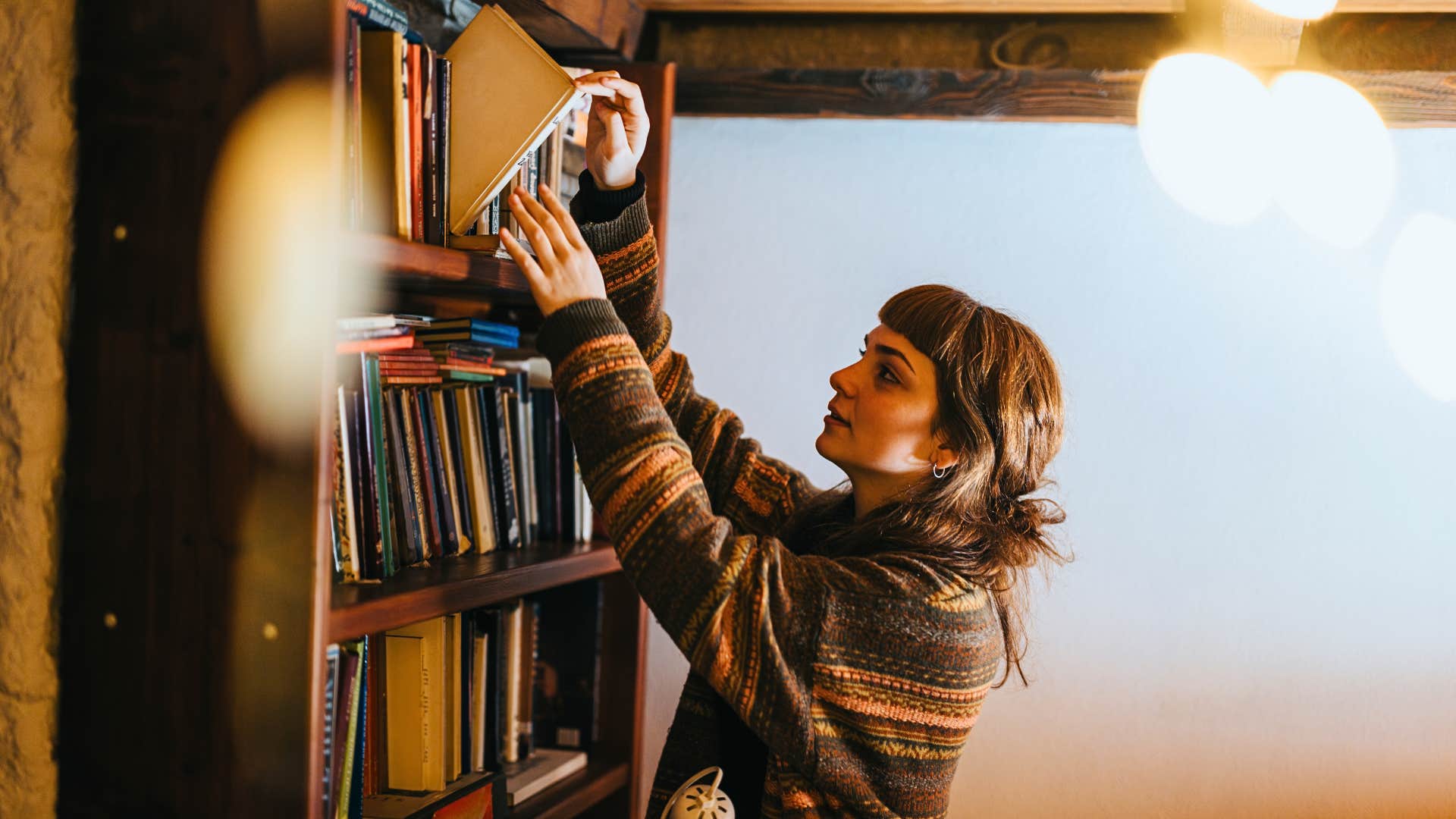 Gorgev | Shutterstock
Gorgev | Shutterstock
Whether it’s a meditation corner, a reading nook, or a drawer of private journals, having something that’s yours alone is vital for self-empowerment. In feng shui, the kun area of your home (the back right corner) governs self-worth and relationships. Lucky people often unconsciously honor that by claiming space.
Psychological research highlights the significance of personal space for mental health beyond feng shui. Creating a special space just for you — a cozy meditation corner, a comfortable reading nook, or even a dedicated drawer for your journals — can boost your emotional well-being and help you develop a strong sense of self. A study by Justin Ames Gamache at the University of Phoenix highlights that keeping certain parts of our lives private can really boost our emotional well-being and help us maintain a better sense of self-identity.
Spiritually, having space that’s yours reinforces a powerful boundary that they exist independently of what others need from them. That energy of sovereignty naturally attracts respect, opportunity, and abundance, because it radiates confidence instead of depletion.
7. A mirror they like looking into
 G-Stock Studio | Shutterstock
G-Stock Studio | Shutterstock
Mirrors are powerful in feng shui. They double the energy of whatever they reflect. If they’re placed well, they can increase abundance. They amplify stress if they’re in disrepair or reflect something harsh (like clutter or chaos).
From a psychological perspective, mirrors are crucial in shaping our self-perception. Allen Weng writes that the image reflected in the mirror often becomes our main way of assessing ourselves, shaping how we think and feel about our appearance and self-worth.
When a mirror reflects a version of yourself you love, it becomes an energetic affirmation. Lucky people often keep their mirrors clean, well-lit, and in places where they reflect something positive. The goal isn’t vanity, it’s recognition. You see yourself clearly, lovingly, and often. That kind of reflection attracts experiences that mirror that self-trust.
8. A plant that’s alive and thriving
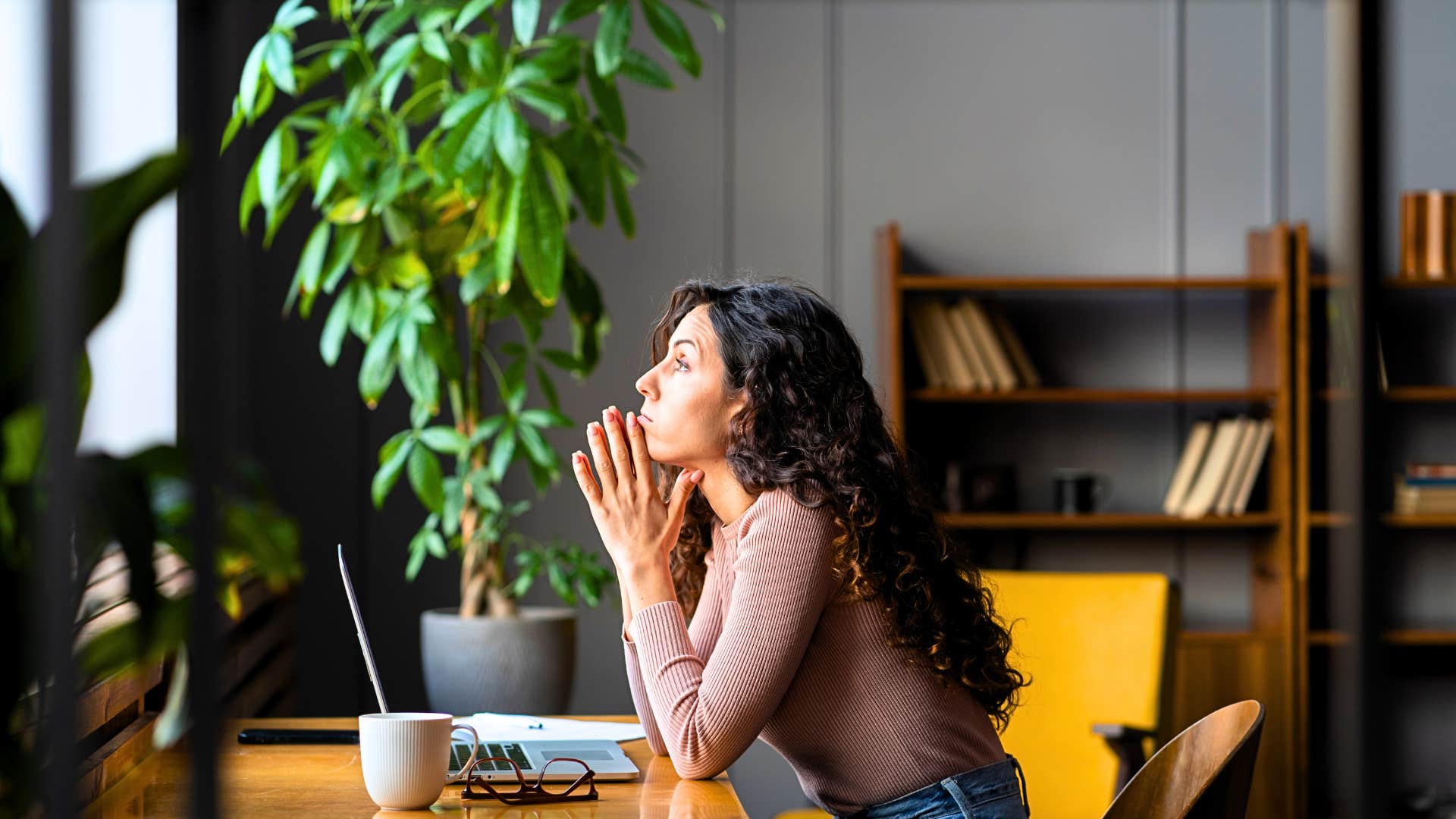 DimaBerlin | Shutterstock
DimaBerlin | Shutterstock
In feng shui, plants are considered living qi. A healthy plant increases one's vitality and optimism. Each leaf symbolizes a growing life force, and caring for one is a quiet ritual of attention, consistency, and belief in growth.
Beyond their symbolic significance, thriving plants offer tangible psychological benefits. Research indicates that interacting with indoor plants can reduce physiological and psychological stress. A study published in the Journal of Physiological Anthropology found that active engagement with indoor plants led to lower blood pressure and feelings of comfort compared to computer-based tasks.
Lucky homes often have at least one thriving plant. It doesn’t have to be dramatic — even a simple pothos or herb plant can transform a space. The point is: it’s alive. It’s growing. It’s proof that this home's energy supports expansion, as does the person who lives there.
9. A system that works — even if it’s weird
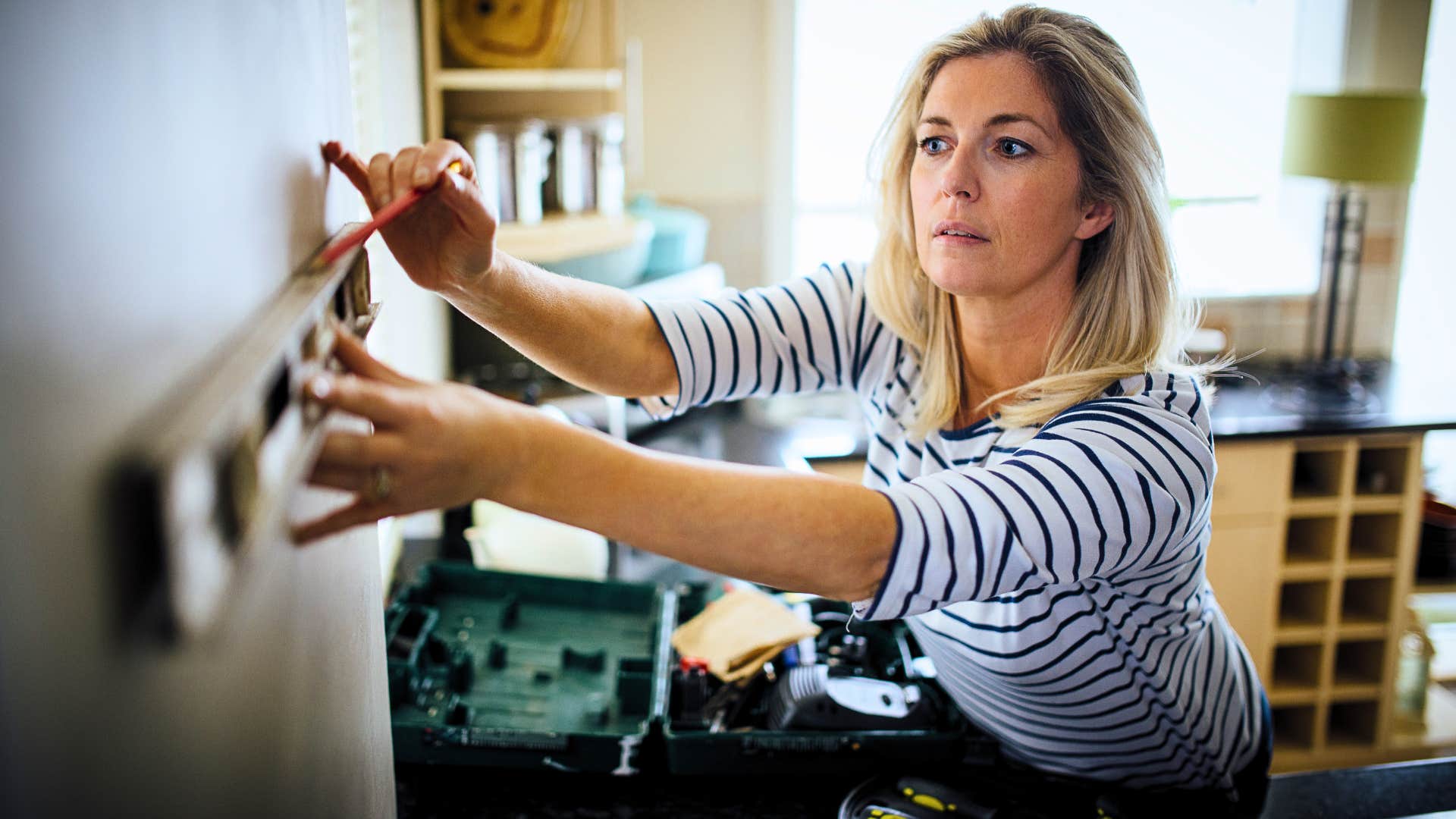 DGLimages | Shutterstock
DGLimages | Shutterstock
Spiritual alignment doesn’t mean perfection; it means resonance. Feng shui encourages you to feel out what works in your unique space, not just follow rules blindly. Lucky people often have unconventional but intuitive systems that keep them flowing: maybe they hang keys on a nail, keep clothes by the door, or use bowls for everything.
The Simple Home Project explained that establishing easy-to-maintain organizing systems helps reduce friction in daily life, aligning with feng shui principles to create a harmonious environment.
Personalized organization systems enhance feelings of control and well-being. The Georgia Veterinary Medical Association notes that organizing allows individuals to feel more in control of their environment. It suggests that creating a system that works best for you can enhance daily life.
Those systems may not be correct, but they work. And in spiritual terms, anything that helps you move through your day with ease is sacred. Ease is a form of abundance. Systems that reduce resistance create room for synchronicity and momentum.
10. Something they haven’t outgrown yet — on purpose
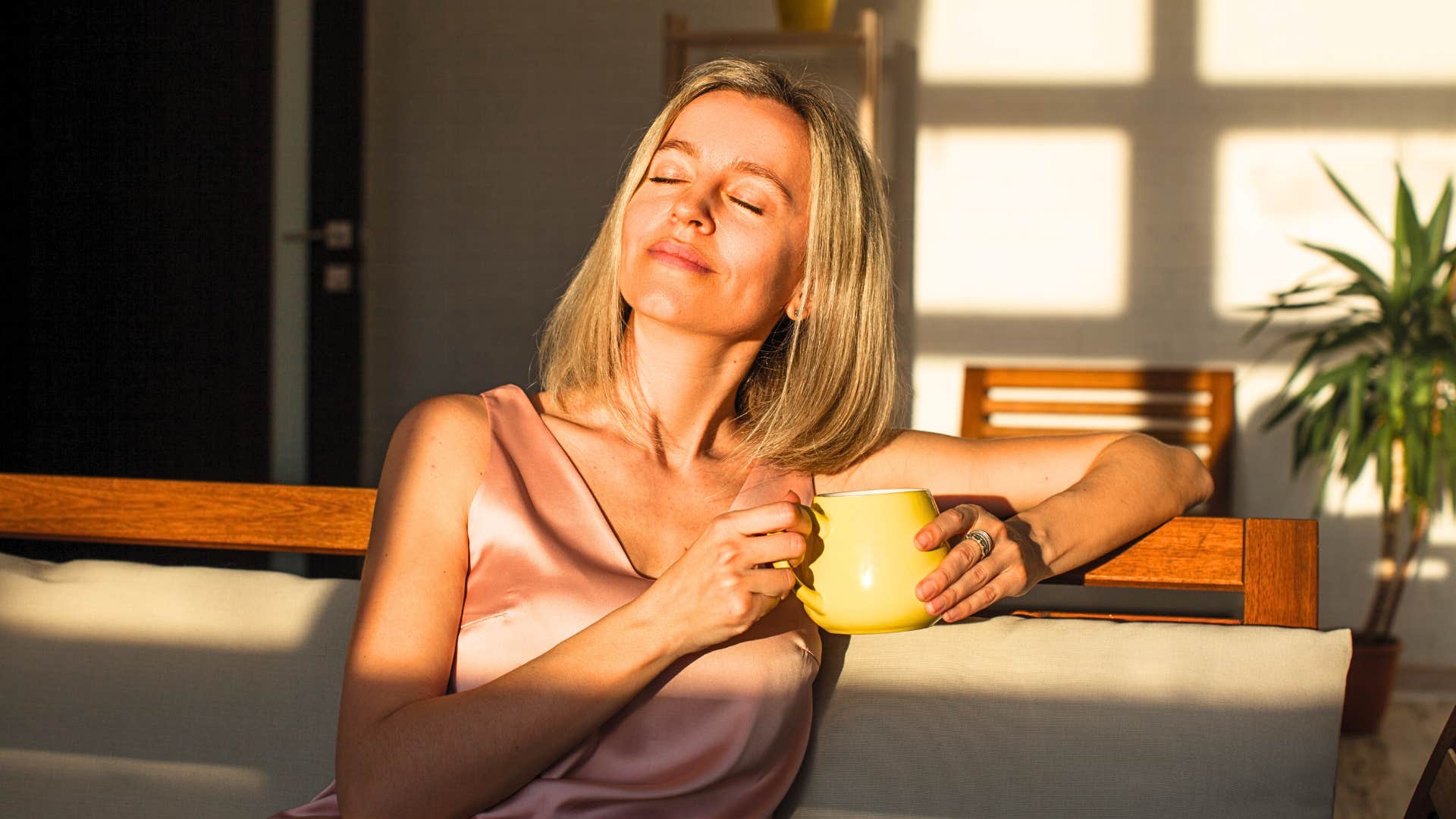 Gladskikh Tatiana | Shutterstock
Gladskikh Tatiana | Shutterstock
In spiritual traditions, anchoring to your inner child or higher self is essential to magnetism. You are most powerful when you’re emotionally integrated and carry the memory of who you’ve been without letting it trap you.
Psychologically, these cherished items function as "transitional objects," a concept introduced by pediatrician and psychoanalyst Donald Winnicott. Transitional objects, such as a childhood blanket or toy, provide psychological comfort and aid in developing independence and emotional resilience. They serve as a bridge between the known and the unknown, offering stability during times of change.
Lucky people often keep one item that connects them to magic, wonder, or old belief, like a childhood book, a first-dollar bill, or a note from someone who changed their life. That item isn’t about nostalgia. It’s a talisman. It says, “I remember who I am. I still believe.” That kind of belief attracts miracles.
11. A door that closes fully and peacefully
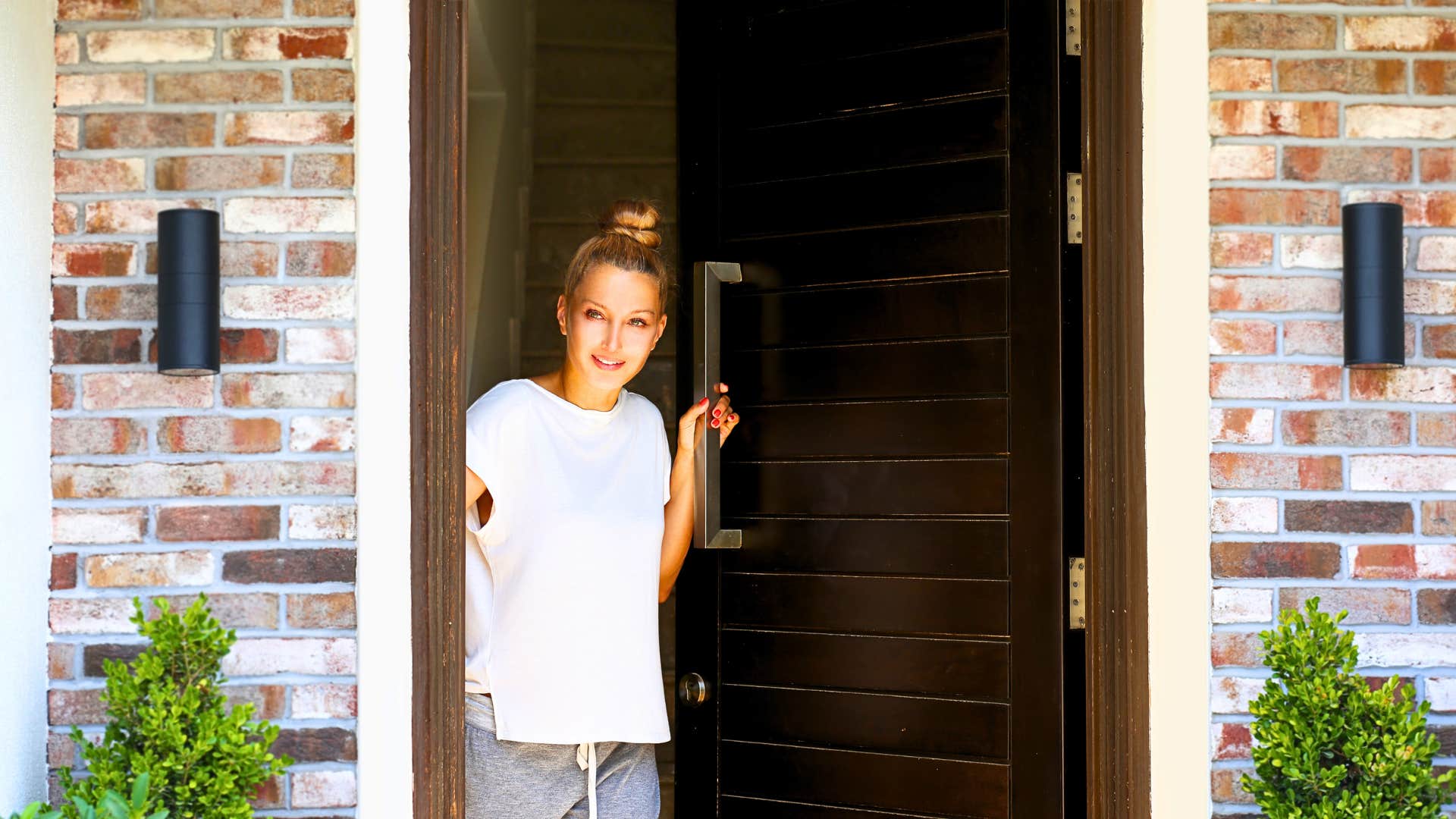 LADO | Shutterstock
LADO | Shutterstock
In feng shui, doors are all about boundaries. A door that slams, squeaks, or gets stuck symbolizes tension around endings, transitions, and limits. A peaceful-closing door, on the other hand, represents graceful closure, privacy, and self-respect.
Design expert Bobby Berk emphasizes the importance of maintaining functional doors: "If your door squeaks, gets stuck or doesn't open easily, fix it. Energy doesn't want to deal with that annoyance!"
Feng shui consultant Laura Cerrano shares that doors play a significant role in communication, acting as the "mouth of qi" and as the main gateway for energy flow into your home.
People with good luck often have a bedroom or office door that closes fully, without effort or drama. It’s not just structural, it’s symbolic. You can’t welcome luck into your life if you don’t know how to close the door on what drains you. And when your physical doors work, your emotional boundaries tend to follow.
Micki Spollen is YourTango’s Deputy Editor. She has a Bachelor’s Degree in Journalism and Media Studies from Rutgers University and over 10 years of experience as a writer and editor covering astrology, spirituality, and human interest topics.

